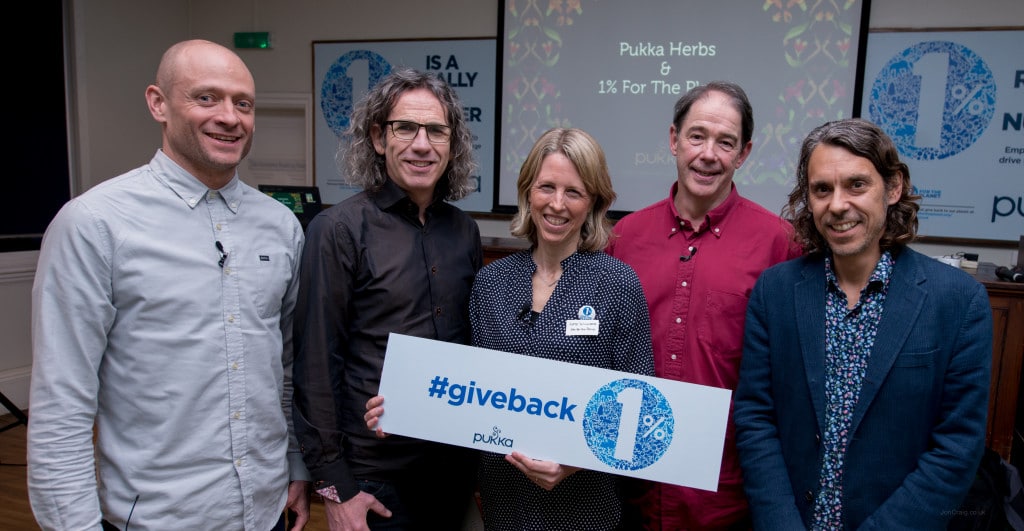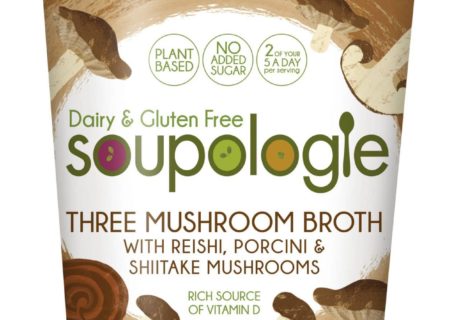Yesterday saw the UK launch of 1% for the Planet, a not-for-profit organization that aims to recruit businesses to donate 1% of their turnover to environmental causes.
 The launch event, held at Chelsea Physic Garden in London, was hosted by Pukka Herbs, 1% for the Planet’s biggest UK company recruit to date.
The launch event, held at Chelsea Physic Garden in London, was hosted by Pukka Herbs, 1% for the Planet’s biggest UK company recruit to date.
At the event, Kate Williams, 1% for the Planet CEO, explained: “Giving to environmental causes is only 3% of total philanthropy, and only 3% of this comes from businesses. The scale of environmental challenges and opportunities we face is vast, from climate change to micro-plastic pollution. The need for more funding and for advocates working for solutions is real and pressing.
“The way companies are investing in sustainability is growing and changing, as is the way individuals are seeking to support causes as donors and consumers. At the same time, non-profits are increasingly scrutinized for their impacts and operations. It is in this space, that the 1% for the Planet network is making a difference for our planet.”
Pukka CEO, Tim Westwell, said: “If we are going to address the global problem of climate change there has to be a step change in how businesses behave. We feel strongly that businesses, such as Pukka Herbs, have a responsibility and, through 1% for the Planet, an opportunity to contribute to this. As we connect people with the health-giving power of herbs we can give back and protect the environment that is the source of our business, as well as our lives. We’d love it if more companies joined us for the benefit of people, plants and planet.”
Other speakers at the event included environmentalist, writer and co-founder of Forum for the Future, Jonathon Porritt and Surfers Against Sewage CEO Hugo Tagholm.
“Environmental causes present the biggest existential threat in the whole history of human kind on this planet, the fact that only 3% of total philanthropic giving goes into environmental causes is unbelievable,” said Porritt.
“You don’t prosper as a business when the life support systems on which we all depend are collapsing. There is a very simple correlation between business success and planetary security. This role now is very important and I think it will grow and the contribution from organizations like 1% for the Planet will become more and more important,” he added.
The event also highlighted the impact that the FTSE 100 – the combined turnover of which is over £1 trillion – could make on positive climate action. A 1% contribution (£10 billion) towards protecting the environment through the 1% For the Planet network would enable: the acquisition of 100,000,000 acres; the offsetting of 1.5 billion metric tons of carbon; the planting 15 billion trees in developed countries or 150 billion trees in developing countries; and the restoration of over 28 trillion litres of water in stream and river projects that would directly restore economic and ecological vitality of fresh water ecosystems.
Surfers Against Sewage is one of the environmental charities that has benefitted from 1% for the Planet. The charity’s CEO Hugo Tagholm commented: “You all might have been to the supermarket recently and had to take your own bags along, which was a great victory. My team worked very hard with a number of other charities to bring about that new legislation … that victory means that there is now an 80% reduction in the number of plastic bags given out in supermarkets.
“1% for the Planet is vital to help us do what we do best, for us to innovate, resource some of our best campaigns and we can’t do it without these types of funds.”
The organization was created by Yvon Chouinard (founder of Patagonia) and Craig Mathews (former owner of Blue Ribbon) in 2002, since which time members have donated over $145 million.





